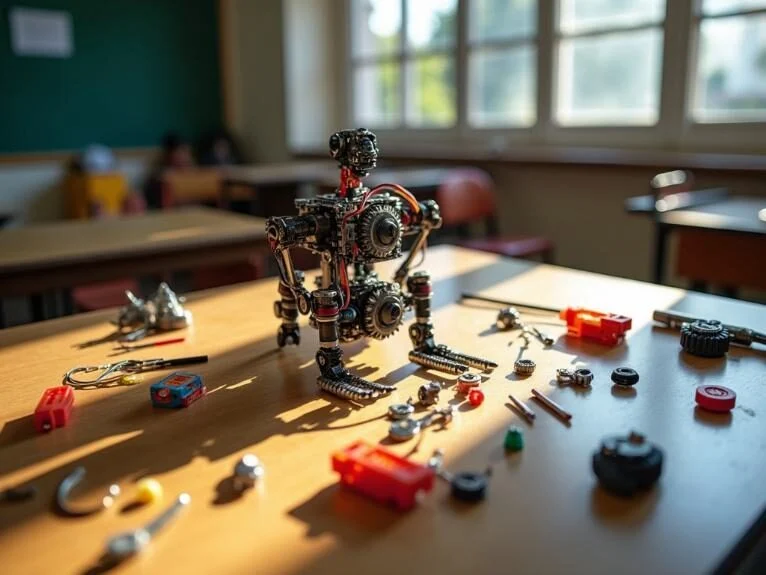Innovation is taking center stage in Kerala as the state becomes the first in India to make robotics education mandatory for Class 10 students, with the program set to launch on June 2, 2025.
Kerala leads the way in education by mandating robotics for Class 10 students, launching this innovative program on June 2, 2025.
This pioneering initiative, driven by the Kerala Infrastructure and Technology for Education (KITE), targets around 4.3 lakh students—that’s 430,000 young minds—across high schools statewide.
It’s a significant step, building on Kerala’s earlier achievements in artificial intelligence (AI) education, which already reaches students from grades 7 to 10.
The robotics curriculum is neatly woven into the sixth chapter of the ICT textbook, titled “The World of Robots.”
Here, students won’t just read about technology; they’ll engage in practical activities like building circuits, using sensors, and even coding on computers.
To support this hands-on learning, KITE has distributed 29,000 robotics kits to high schools across the state.
These kits guarantee that every Class 10 student, no matter where they’re studying, gets a chance to experiment with real tech tools.
Additionally, the curriculum is designed to address real-world challenges by introducing students to cutting-edge technologies.
This practical focus aims to equip students with skills that are critical for future careers in technology and robotics, and the curriculum includes innovative projects like building an automated sanitizer dispenser.
Kerala’s commitment to innovative education shines through this program.
The state, already recognized nationally for introducing AI learning to seventh-graders and expanding it to higher grades, is pushing boundaries again.
KITE, the technical arm of the General Education Department, plays a central role under the leadership of K Anvar Sadath, who also heads the ICT Textbook Committee.
This group has carefully crafted the curriculum, guaranteeing it’s both engaging and relevant.
As a result, students aren’t only learning theory but gaining a competitive edge in fields that’ll shape tomorrow’s world.
The impact on students is expected to be substantial.
By working on robotics projects, they’ll develop fundamental skills in programming and design, which could open doors to exciting job opportunities later.
Beyond that, the hands-on nature of the activities is likely to boost their interest and motivation in learning.
A spokesperson from KITE noted, “We’re preparing a generation for a tech-driven future, giving them tools to succeed in a rapidly changing world.”
This statement reflects the state’s forward-thinking approach to education.
Statewide implementation means no student is left behind, with all high schools equipped to roll out the program.
The integration of robotics into the existing ICT textbook shows a seamless blend of new and established learning.
KITE’s strategic planning and infrastructure support have been key to making this a reality.
As June 2, 2025, approaches, Kerala stands as a model for how education can adapt to modern needs, setting a benchmark for other states to follow.
This initiative isn’t just about robots; it’s about building a foundation for innovation and progress that’ll benefit students for years to come.

